The early years
Bergen-auf-Rügen
Christian Albert Theodor Billroth was born in Bergen-auf-Rügen on the 26th April 1829. Rügen is the largest of all the German islands and lies in the southern Baltic close to the coast of Germany. Nowadays it is a very popular holiday destination. (Hitler chose Rügen as the site for a big workers’ holiday camp.) Billroth always maintained that he was something of a mongrel, having Swedish, Prussian and even French forbears. When one looks at the map it is easy to understand how Rügen was variously part of the Danish, Swedish and finally Prussian kingdoms and how the genetic stock of a family living on the Baltic coast might be derived from these various nationalities. The paternal Billroth name is of Swedish origin. Billroth was born into a well-to-do family of Bürgermeisters and local worthies. His grandfather was Johann Christian Billroth, who was a lawyer and who, in 1821, became Bürgermeister of the university town of Greifswald. The picture of the main reception room in the grandfather’s house in Greifswald suggests a family of some substance as does the roll call of the five godparents, all senior public officials and their wives. NSW place great store by the accomplishments of Billroth’s forebears, comprising lawyers, bürgermeisters, councillors, pastors and theologians, suggesting that this genetic inheritance lay behind his future success.
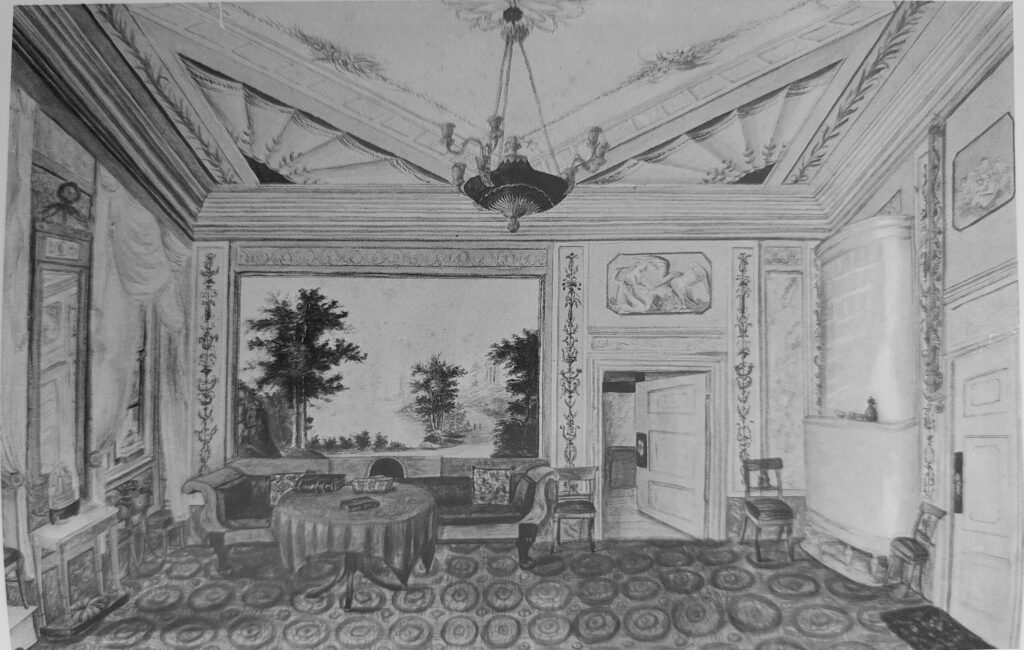
Billroth’s father was Karl Theodor Billroth and a pastor. At the time of Billroth’s birth his father was deputy to the ill and aged Herr Knust, who was the incumbent of the beautiful Gothic church of St. Marien in Bergen. The church has its origins in the 12th century but its current form dates from the 14th century. The architecture – so-called brick Gothic – is typical of many churches built in northern Germany during the 13th, 14th and 15th centuries at a time when the Hanseatic League was in its commercial heyday and the region was wealthy. The church is well worth a visit. The interior is characterised by attractive brickwork of variegated colour and a fine ribbed ceiling, reminiscent of the more elaborate fan vaulting seen in Gothic cathedrals The handsome pulpit and altar appeared in the 18th century, complementing the impressive chandelier which had been commissioned after the Thirty Years War. The interior is enlivened by numerous frescoes and wall paintings depicting biblical scenes. One can see the 14th century font in which Billroth was christened.
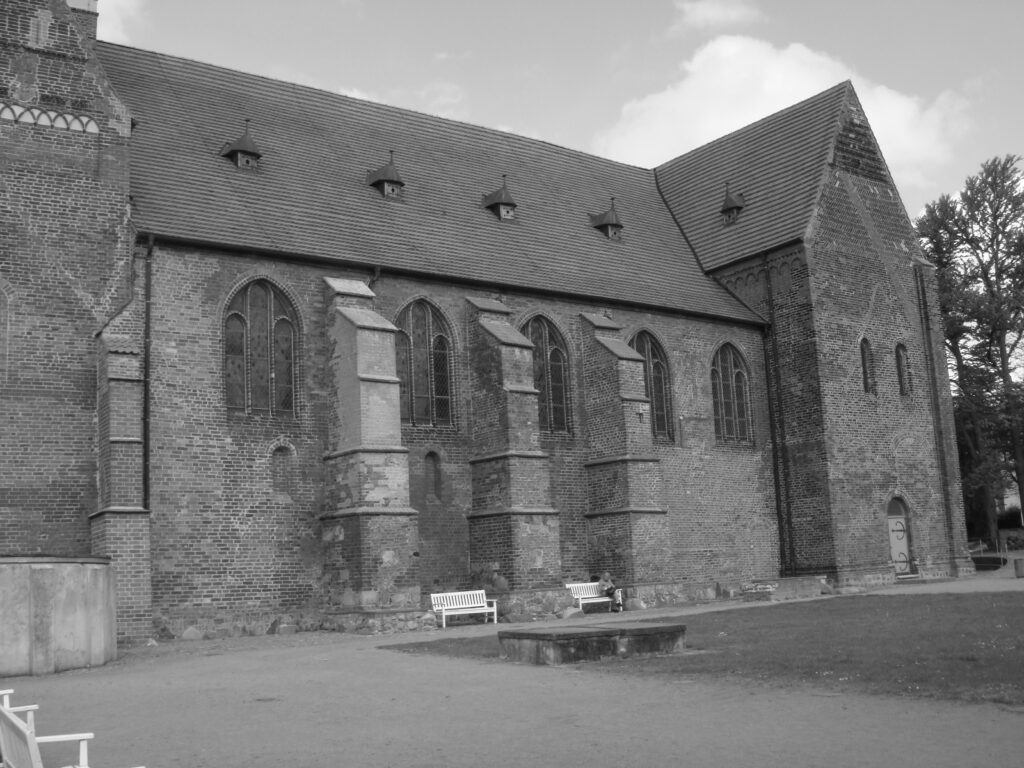
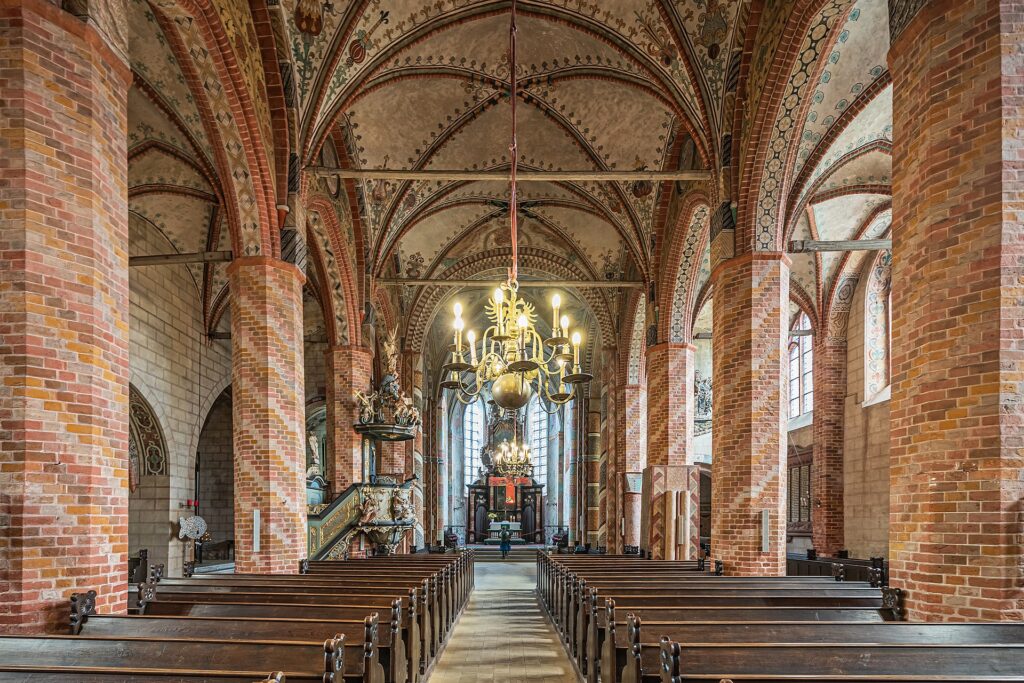
St. Marien: the interior
The house where Billroth was born is an attractive 18th century burger’s house. The house has been acquired by the German Surgical Society (Die Deutsche Gesellschaft für Chirurgie), which undertook a programme of complete restoration during the years 1999 to 2002. The house is now a visitor centre, with cafeteria and museum. To mark the restoration the German Surgical Society produced a short book about the house (Peiper and Hartel: Das Theodor-Billroth-Gerburtshaus in Bergen auf Rügen). The book contains an overview of Billroth’s future career.
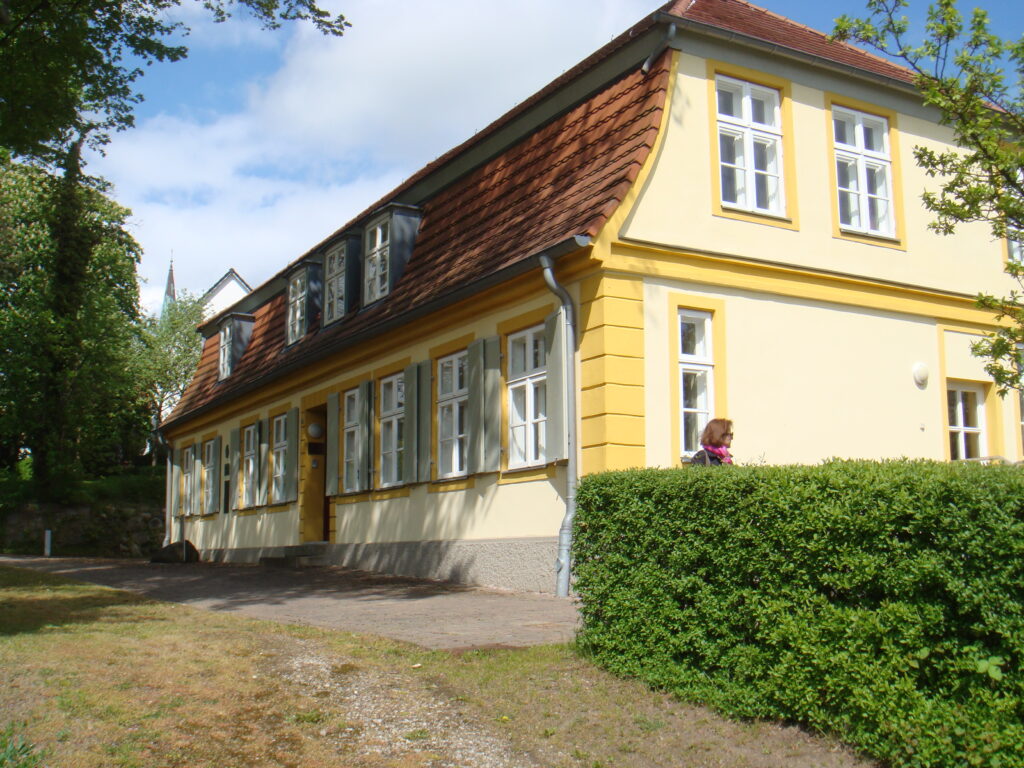
The house where Billroth was born
Billroth’s mother, Joanna Christina (née Nagel) came from Berlin. Theodor Billroth was her first child. He was quickly followed by a sister and another brother before the father was moved to nearby Reinberg, on the mainland, to be the pastor at the pretty village church, another in the red brick Gothic style and dating from the 13th century. In Reinberg the family grew further, with the birth of three more boys, the last two as twins, before the father died of dysentery in October 1834. It seems that there was some kind of epidemic in this small community, which accounted for 20 lives over a period of 4 months. Johanna Maria Dorothea, the second born, died in very early in infancy – I have been unable to establish exactly when. The widow moved now with her 5 sons to Greifswald to live with her father-in-law, the bürgermeister.
Greifswald
Greifswald, founded in the 12th century, sits at the mouth of the River Ryck, looking out onto the Baltic. The university, one of the oldest in the world, was founded in 1456. A notable alumnus of the town is the famous romantic painter Caspar David Friedrich (1774-1840). His view of Greifswald shows a distant view of the town as it would have appeared in Billroth’s childhood.
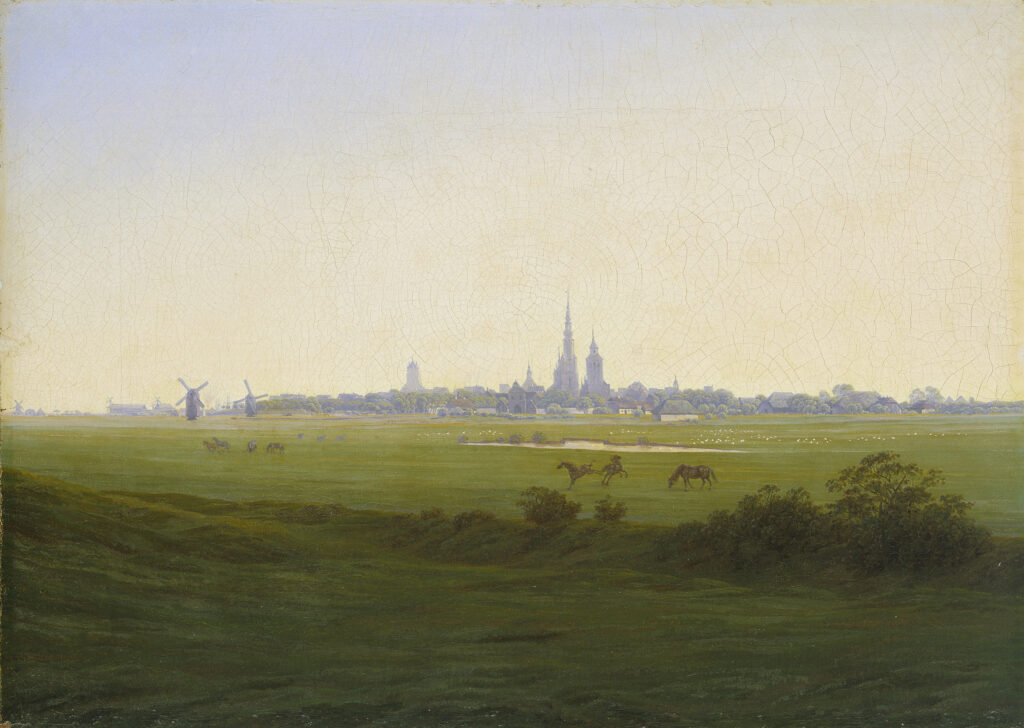
Caspar David Friedrich: A view of Greifswald across meadows
The grandfather
Johann Christian Billroth (1769-1848) must have had considerable influence on the development of the young Billroth, especially in regard to Billroth’s progress as pianist and musician. He was a renowned patron of musical activities in Greifswald and, indeed, in the wider province of Pomerania, sponsoring musical events as far away as Lübeck.
We know little else of the grandfather, other than that he was reputedly the most upright of citizens, with a notably open and charming manner, a quality that the young Theodor would surely have sought to emulate (and did so). There is, however, one item of interest, even of significance, in regard to the grandfather. Johann Christian was at school with the German nationalist Ernst Moritz Arndt (1774-1840). Despite the 5 year gap in age, they became friends, perhaps close friends. In his lifetime, Arndt became a greatly admired personage, with his outspoken condemnation of Napoleon during the French occupation of Pomerania that followed the battles of Jena and Auerstadt in 1806, his demand for the abolition of serfdom and his strongly expressed desire for a unified Germany. However, he held views which to us today are most distasteful and sully his reputation. He expressed contempt for the French and Polish in vehement language and was strongly anti-Semitic. My question. Was the grandfather of similar opinion.? And did such thinking have any influence with the young Theodor, who, in later life, expressed at least annoyance with the French and, soon after his arrival in Vienna, was accused of anti-Semitism (wrongly, in my view and a matter I shall deal with later).
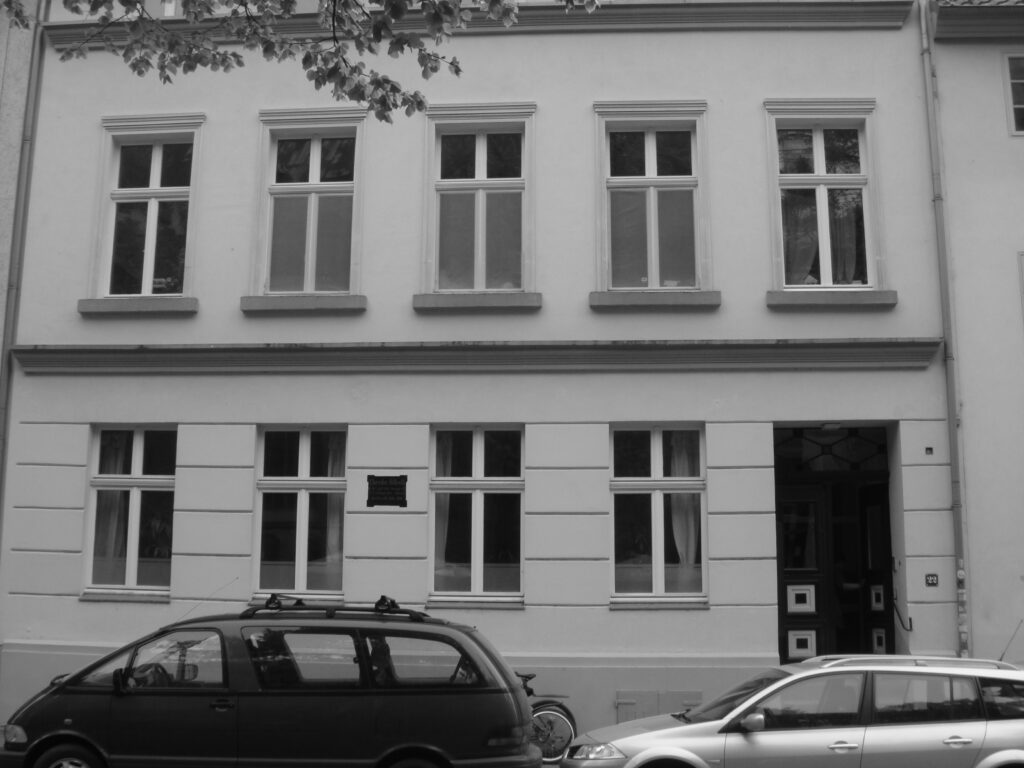
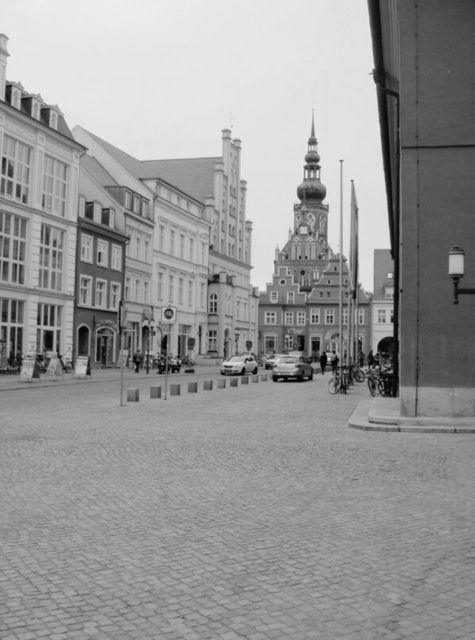
School
Billroth attended the gymnasium (equivalent to the English grammar school) in Greifswald. In his own estimate, his time at school was relatively undistinguished.
It is apparent, from Billroth’s own words (my translation), that he was an assiduous pupil throughout, his school years but one whose early energies favoured his musical endeavours at the cost of his schoolwork.
“Unfortunately I did not use my two years in Tertia*, as I should and could have done, even though we were given a wonderful opportunity to get a solid grounding in Latin and Greek forms. On my move to Secunda I had found it difficult to keep up with the other pupils. Because of this I undertook private coaching with Herr Dr. Scheele and under his efficient tutelage filled in the holes in my knowledge as much as I could. “
NSW quote from the memoirs of Johann von Mikulicz-Radecki (actually from a note added by his wife, Henriette von Mikulicz-Radecki):
“An over concerned teacher advised Billroth’s mother to remove her son from school and get him started in some practical occupation. I do not know whether this teacher lived long enough for Frau Billroth to put him right …”
Frau Billroth took heed and arranged for the private tuition with Herr Dr. Scheele, at some financial sacrifice. Apparently Billroth, in his pomp, liked to tell this story when amongst close friends.
To continue with Billroth’s account of his school years:
“Now Homer’s Odyssey aroused in me the greatest admiration and interest. I came to love Greek, and in Prima I encountered Latin and came to know the Germany of Tacitus, which I preferred to the whole of Livy’s Roman histories. Because I did not allow the opportunity presented to me, to practise the speaking and writing of French, to pass me by, I had no reason to regret the many hours in pursuing proficiency in the language. Of course, in my last school year music had to retreat more and more into the background. But I will certainly not come to regret the time spent in persisting with Music, my great love, even if, as I must confess, I might well have been able better to combine the study of science and music with more orderly time management. My existence in those last years was pretty independent, my mother being much constrained by illness, and I owe a debt of great thanks – this feeling has never lessened – to my teacher, who, in those last years, gave me the benefit of his advice in so many ways, advice which was to influence me all my life.
My attraction towards the study of Medicine is so strong that I have pretty well decided to take it up.”
A description, surely, of a polymath in embryo, of a man who, in his life, thirsted for knowledge in so many disciplines, of man with a remarkable breadth of vision.
*For an excellent account of the gymnasium system read “The German Gymnasium in its Working Order” by George Moritz Wahl, an article published in 1889, yet still relevant, surely, to the 1840s , when Billroth was at school, and which one may read a online.: